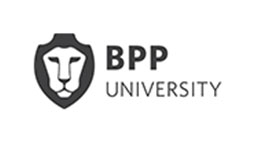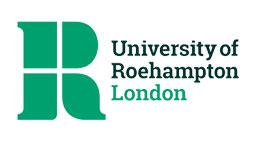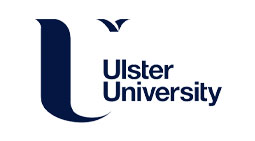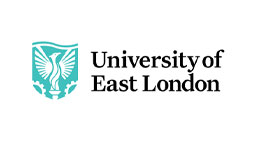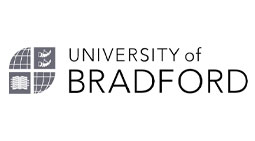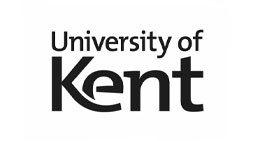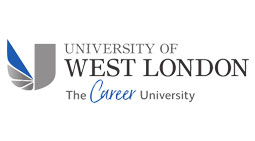UK

Study in the UK and experience an outstanding education that blends academic excellence, diverse cultural experiences, and exciting career opportunities. Home to some of the world’s most prestigious universities, the UK offers innovative programs, modern teaching methods, and a dynamic learning environment. Whether you’re pursuing business in London, engineering in Manchester, or medicine in Edinburgh, studying in the UK equips you with the skills and knowledge needed to achieve your academic and career goals.
Why Study in UK from Nepal?
Following are the reasons to study in UK from Nepal:
World-Class Education – The UK is home to some of the best universities in the world, offering high-quality education that is recognized globally.
International Recognition – A degree from a UK university holds immense value worldwide and opens doors to international job opportunities.
Diverse Course Options – The UK offers a wide range of courses across various fields, such as business, engineering, medicine, arts, and social sciences, allowing students to pursue their passions.
Shorter Course Duration – Undergraduate courses typically last 3 years, and postgraduate programs take just 1 year, which helps save both time and tuition fees compared to other countries.
Work While Studying – International students can work up to 20 hours per week during term time, allowing them to gain work experience and support themselves financially.
Post-Study Work Opportunities – The Graduate Route Visa allows students to stay and work in the UK for two years (three years for PhD graduates) after completing their degree.
English Language Skills – Studying in the UK provides an excellent opportunity to enhance English language skills in an immersive environment, which is valuable in global careers.
Support for International Students – UK universities offer extensive support services, including career counseling, accommodation assistance, and student health services.
Pathway to Global Networking – Studying in the UK connects you with peers and professors from all over the world, helping you build a strong global network that can benefit your future career.
Application Process to Study in UK
Applying to study in the UK involves several steps, from choosing the right university and course to submitting the required documents and securing a student visa. Here’s a guide to the application process:
1. Choose a University and Course
Start by researching universities and selecting a course that aligns with your academic and career goals. The UK offers a wide range of programs, and each university may have specific entry requirements.
2. Check Entry Requirements
Each university and course has different eligibility criteria. Common requirements include:
- Academic qualifications (such as high school or bachelor’s degree certificates)
- English language proficiency (IELTS, TOEFL, or equivalent)
- Personal statement and letters of recommendation
- Some courses may require additional tests or interviews
3. Submit Your Application
- Undergraduate Applications: Apply through UCAS (Universities and Colleges Admissions Service), the centralized application system for UK universities.
- Postgraduate Applications: Apply directly through the university’s website or portal. Some universities may also accept applications through UCAS Postgraduate.
4. Pay Application Fees
Some universities charge an application fee, especially for postgraduate courses. Check the specific university’s website for details.
5. Receive an Offer Letter
If your application is successful, you will receive either:
- Conditional Offer: You need to meet certain conditions (such as achieving a required IELTS score or final exam results).
- Unconditional Offer: You have met all requirements, and your place is confirmed.
6. Accept the Offer and Pay Tuition Deposit
Once you receive an offer, accept it and pay the required deposit to secure your place at the university.
7. Apply for a UK Student Visa
With your Confirmation of Acceptance for Studies (CAS) from the university, apply for a UK Student Visa (Tier 4) by submitting the required documents and paying the visa fee.
8. Arrange Accommodation and Travel
After securing your visa, plan your accommodation and book your travel to the UK before your course starts.
Cost of Living Expense in UK
The cost of living in the UK varies depending on the city, lifestyle, and accommodation choices. On average, international students, including those from Nepal, should budget between £10,000 – £15,000 per year for living expenses, excluding tuition fees. Below table presents the estimated monthly cost.
|
Expense Category |
Estimated Cost (Per Month) |
|
Accommodation (Average) |
£600 – £1200 |
|
Food & Groceries |
£150 – £300 |
|
Eating Out |
£10 – £20 per meal |
|
Transportation |
£50 – £100 (Student Travel Pass) |
|
Utilities & Internet |
£50 – £150 |
|
Study Materials |
£30 – £100 |
|
Mobile Phone Bills |
£10 – £40 |
|
Leisure & Personal |
£100 – £300 |
|
Health Insurance (IHS) |
£470 per year |
|
Part-Time Work |
Up to 20 hours/week (Avg. £10 – £12/hr) |
Admission Guidelines to Study in UK from Nepal
1. Academic Qualifications
- Undergraduate Programs: Completion of higher secondary education (+2 in Nepal) with required grades.
- Postgraduate Programs: A recognized bachelor's degree, usually with a minimum second-class division.
- Some courses may have specific subject requirements.
2. English Language Proficiency
Most universities require an IELTS score of 6.0 – 7.0 or a PTE Academic score of 50 – 65, depending on the course.
3. Letters of Recommendation
Undergraduate applicants typically need one recommendation letter, while postgraduate applicants require two academic or professional references.
4. Financial Proof
To secure a UK Student Visa (Tier 4), students must show proof of sufficient funds to cover tuition fees and living expenses as per UK visa requirements.
5. Work Experience (For Certain Courses)
Some postgraduate programs, particularly MBAs and specialized master’s courses, may require relevant work experience (usually 1-3 years).
6. Interview (if required)
Some universities may conduct interviews, especially for competitive courses like medicine, law, or research-based programs.
- The UK is home to four of the world's top 10 universities, including the University of Oxford and the University of Cambridge.
- London is the most international student city globally, hosting students from over 200 nations.
- The UK has a vibrant arts scene, being the birthplace of iconic music bands like The Beatles and literary giants like William Shakespeare.
- Students can visit historical landmarks like Stonehenge, the Tower of London, and Edinburgh Castle, all while enjoying a modern lifestyle.
Universities in UK for Nepalese Students
The UK is the home of many universities, and here is a table summarizing the universities and what they offer:
|
S.N |
University |
Undergraduate Programs |
Postgraduate Programs |
|
1 |
Ulster University |
Business, Computer Science, Law, Engineering, Health |
Business Administration, Public Health, Education |
|
2 |
University of East London |
Business, Engineering, Education, Law, Media & Arts |
Master’s in Business, Public Administration, Law |
|
3 |
University of Dundee |
Life Sciences, Business, Law, Engineering, Arts |
Engineering, Computer Science, Healthcare |
|
4 |
University of Greenwich |
Business, Computer Science, Education, Psychology |
Master’s in Marketing, Business Administration |
|
5 |
University of Kent |
Law, Business, Psychology, Engineering, Media |
Law, Business, Marketing, Architecture |
|
6 |
University of Portsmouth |
Business, Computing, Engineering, Art & Design, Law |
Business, Engineering, Psychology, Computer Science |
|
7 |
University of West London |
Business, Health, Music, Computing, Law |
Master’s in Business, Healthcare, Digital Marketing |
|
8 |
BPP University |
Business, Law, Accounting, Marketing, Finance |
Law, Business, HR, Finance |
|
9 |
Coventry University |
Business, Engineering, Media, Computing, Design |
Business, Engineering, Education, Arts |
|
10 |
De Montfort University |
Business, Arts, Design, Computing, Law |
Business, Management, Law, Technology |
|
11 |
University of Edinburgh |
Business, Law, Medicine, Engineering, Arts & Humanities |
Business, Engineering, Life Sciences, Law |
|
12 |
University of Roehampton |
Education, Arts, Psychology, Business, Media |
Psychology, Education, Business |
Job Opportunities for Students in the UK
Job opportunities in the UK vary for students. It includes:
-
Part-Time Job Options for Students (While Studying)
- Retail Jobs – Work as a sales assistant in supermarkets, clothing stores, or electronics shops, helping customers and managing inventory.
- Hospitality Jobs – Roles in restaurants, cafes, and hotels as waiters, baristas, or kitchen assistants, offering flexible shifts and tips.
- Customer Service – Work in call centers or help desks, assisting customers with inquiries and providing support.
- On-Campus Jobs – Positions such as library assistants, student ambassadors, or administrative support staff within the university.
-
High-Demand Sectors for Post-Study Jobs in the UK
- Healthcare & Nursing – Doctors, nurses, and medical staff are in high demand, offering strong career growth and sponsorship opportunities.
- Engineering & Technology – Fields like civil, mechanical, and software engineering have a growing demand for skilled professionals.
- IT & Cybersecurity – Software development, data science, and cybersecurity roles are expanding rapidly in the UK job market.
- Finance & Accounting – Banks, investment firms, and multinational companies hire accountants, financial analysts, and auditors.
- Education & Teaching – English teachers, lecturers, and academic researchers are in demand, especially for international education programs.
-
Salary Expectations for Students & Graduates
A. Part-Time Jobs (While Studying)
- Retail & Hospitality Jobs – £10–£12 per hour (+ tips for hospitality jobs)
- Customer Service Jobs – £10–£13 per hour
- Tutoring – £15–£30 per hour (depending on subject and experience)
- On-Campus Jobs – £10–£14 per hour
B. Full-Time Jobs (After Graduation)
- Healthcare & Nursing – £25,000–£50,000 per year
- Engineering & Technology – £30,000–£60,000 per year
- IT & Cybersecurity – £35,000–£70,000 per year
- Finance & Accounting – £28,000–£55,000 per year
- Education & Teaching – £25,000–£45,000 per year
-
Job Search Resources for Students & Graduates
- University Career Services – Most universities have career support offices that offer job listings, CV workshops, and interview coaching.
- Job Portals & Websites – Indeed, LinkedIn, Reed, and Prospects UK provide thousands of job listings for students and graduates.
- Networking Events & Career Fairs – Attend university career fairs, industry networking events, and alumni meetups to connect with potential employers.
- Internship & Placement Programs – Many companies partner with universities to offer internships that can lead to full-time job offers.
- Recruitment Agencies – Agencies specializing in graduate recruitment can help students find job opportunities in their field.
- How long do UK university courses typically last?
Undergraduate programs typically last three years, while postgraduate master's programs last one year, offering a shorter duration compared to other countries. - Can I apply to multiple universities in the UK?
Yes, you can apply to up to five universities for undergraduate courses via UCAS and to as many as you wish for postgraduate courses. - Do I need to provide proof of funds to study in the UK?
Yes, you must show proof of sufficient funds to cover tuition and living expenses, usually around £1,334 per month for living costs. - Can I bring my family with me while studying in the UK?
Yes, postgraduate students may be able to bring their family on a dependent visa, depending on the course length. - What are the benefits of studying in the UK?
Study in UK offers world-class education, global career prospects, cultural diversity, and internationally recognized qualifications that enhance employability.

